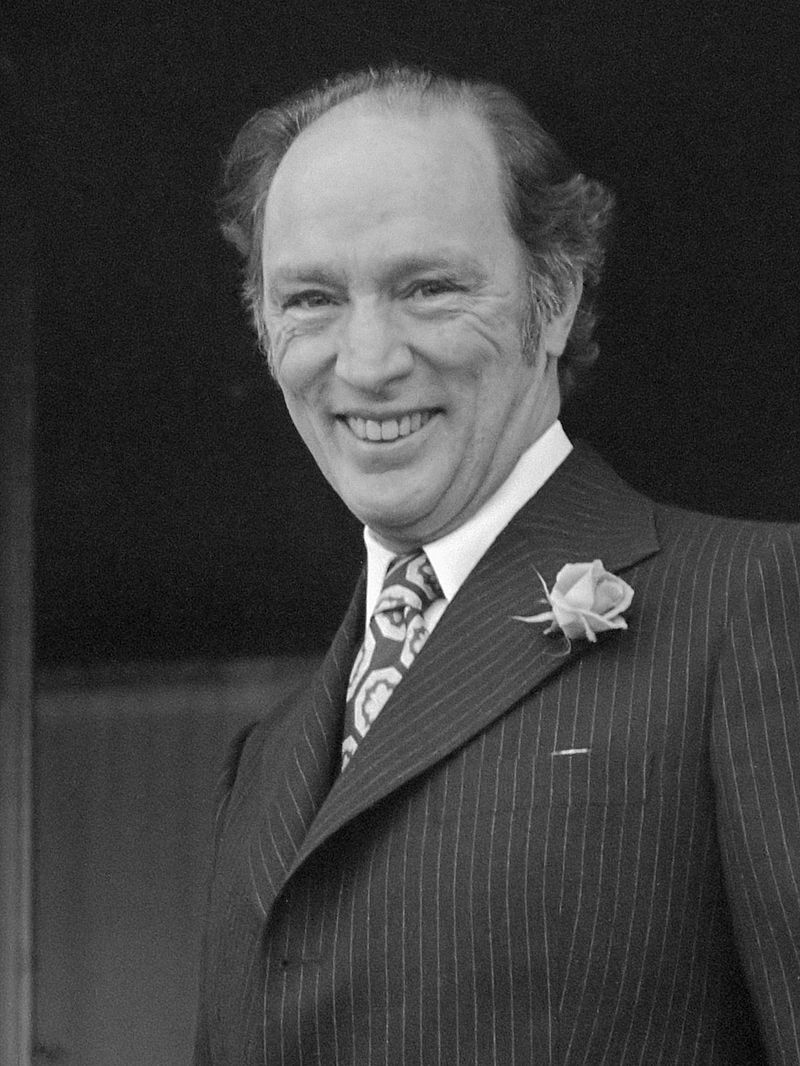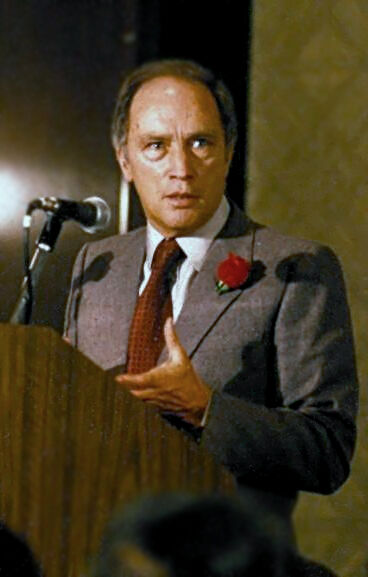Pierre Elliott Trudeau is a Canadian politician of Quebec origin. Leader of the Liberal Party, he was Prime Minister of Canada from 1968 to 1984, with the exception of a brief nine-month interlude between 1979 and 1980. Only Prime Ministers William Lyon Mackenzie King and John A. Macdonald governed longer than Pierre Elliott Trudeau.
During his term as Minister of Justice, he introduced the Omnibus Bill in the House of Commons. The bill made a number of changes to Canadian criminal law, including legalizing divorce and decriminalizing abortion and homosexuality.
During the 1970 October Crisis in Quebec, Prime Minister Trudeau proclaimed the War Measures Act and placed the army at the disposal of Quebec Premier Robert Bourassa. Six years later, his government introduced Bill C-84 to abolish the death penalty. Although a fervent federalist who sided with the "no" side in the 1980 referendum on Quebec sovereignty, Pierre Elliott Trudeau's career has been marked by his attempts to bring together Canada's two founding peoples, sometimes referred to as the "Two Solitudes". Among other things, he passed the Official Languages Act, making Canada a bilingual country and obliging federal institutions to provide service in both English and French. Towards the end of his political career, he repatriated the Canadian Constitution with the consent of all provinces except Quebec.


-
1919: Pierre Elliott Trudeau is born in Montreal on October 18.
-
1950: He co-founds and leads the magazine Cité libre, aimed at opposing the politics of Maurice Duplessis, which were heavily influenced by traditional, conservative values.
-
1967: In December, he introduces the Omnibus Bill in the House of Commons.
-
1969: Newly elected Prime Minister, Trudeau passes Canada's Official Languages Act.
-
1970: In Quebec, the October Crisis erupts. At Robert Bourassa's request, Prime Minister Trudeau triggers the War Measures Act, allowing authorities to imprison 500 people without warrant.
-
1976: In the middle of July, ministers adopt Bill C-84, proposed by the Trudeau government, to abolish the death penalty.
-
1980: In the referendum on Quebec sovereignty, Pierre Elliott Trudeau vehemently supports the "No" camp. He is partly responsible for the "No" victory.
-
1981: On the night of November 4, he asks the premiers of all Canadian provinces except Quebec for permission to repatriate the constitution. This event is known as the "Night of the Long Knives" (or kitchen accord).
-
1982: Trudeau's government brings the Canadian Constitution home.
-
1984: In June, he officially steps down as Prime Minister of Canada. That same year, he and his wife divorce, and he is awarded custody of his three children.
-
1987: Building on his public influence, Pierre Elliott Trudeau takes a stand against the Meech Lake Accord and, in 1992, against the Charlottetown Accord.
-
2000: Pierre Elliott Trudeau dies in Montreal on September 28th.